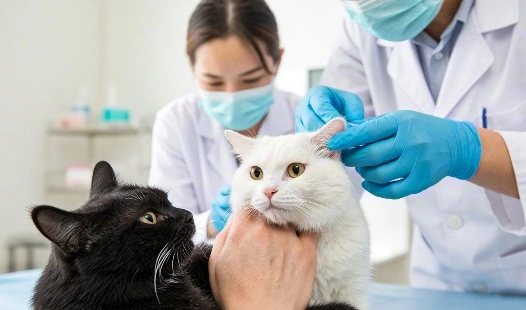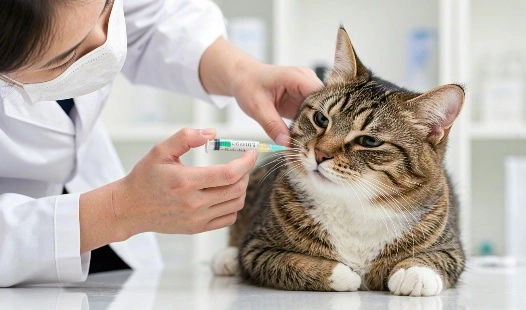Is FIP vaccinated against?
Challenges in developing FIP vaccines
A terrible illness known as Feline Infectious Peritonitis (FIP) strikes cats all over the globe. Many people wonder whether felines can get a vaccine against feline infectious peritonitis as they look for methods to keep their pets safe. Current prophylactic techniques, potential future vaccines, and the intricacies of Feline Infectious Peritonitis vaccination are all explored in this article.
|
|
|
|
Challenges in developing FIP vaccines
The development of an effective vaccine against FIP has proven to be a formidable challenge for researchers and veterinary scientists. Several factors contribute to the difficulties in creating a viable Feline Infectious Peritonitis vaccine:
Viral mutation and diversity
One of the greatest obstacles in creating an effective vaccine against FIP is the extraordinary ability of the feline coronavirus to mutate. This virus is highly prone to genetic changes, which allows it to quickly adapt and form multiple variants. As a result, a vaccine designed to protect against one strain may offer little or no defense against another. This constant viral evolution makes it very difficult to design a vaccine that delivers long-term, broad-spectrum protection. Researchers must continuously adjust their strategies to keep up with these mutations, but the unpredictable nature of viral diversity often causes setbacks in clinical trials and limits the overall progress of vaccine development.
Immune-mediated complications
Another complex challenge is the role of the cat's immune system in the progression of FIP. Unlike many diseases where immune responses offer protection, in FIP the situation is more complicated. Some immune reactions can actually worsen the condition through a process called antibody-dependent enhancement (ADE). Instead of neutralizing the virus, certain antibodies may promote viral entry into cells and increase disease severity. This paradox forces researchers to design vaccines with extreme caution, ensuring that they trigger protective immunity without inadvertently worsening the illness. Balancing safety and efficacy remains one of the most demanding hurdles in the quest for a successful Feline Infectious Peritonitis vaccine.
Lack of suitable animal models
The absence of reliable animal models is another significant barrier to FIP vaccine development. Since Feline Infectious Peritonitis is a disease unique to cats, it is nearly impossible to replicate its progression accurately in other laboratory animals such as mice or dogs. Without suitable models, testing new vaccine candidates becomes highly restricted, as researchers cannot fully predict how the vaccine will perform in real-world feline cases. Even when using cats for trials, ethical and practical challenges arise due to the serious nature of the disease. This limitation in research tools slows down progress and makes it far more challenging to validate the safety and effectiveness of potential vaccines.
|
|
|
|
Current FIP prevention strategies
While a vaccine for FIP remains elusive, veterinarians and cat owners have adopted various strategies to prevent and manage the disease:
Environmental management
Reducing stress and maintaining a clean environment are crucial in preventing FIP. Stress can weaken a cat's immune system, making them more susceptible to viral infections. Regular cleaning and disinfection of litter boxes, food bowls, and living areas can help minimize the risk of coronavirus transmission.
Early detection and isolation
Identifying and isolating cats showing early signs of coronavirus infection can help prevent the spread of the virus within multi-cat households or shelters. Regular health check-ups and prompt veterinary attention for any suspicious symptoms are essential.
Antiviral treatments
Recent advancements in antiviral therapies have shown promise in treating FIP. GS-441524 Injection has emerged as a potential treatment option, offering hope for cats diagnosed with FIP. While not a preventive measure, these treatments have significantly improved the prognosis for affected cats.
|
|
|
|
Future prospects for FIP immunization
Despite the challenges, researchers continue to explore innovative approaches to FIP vaccination and prevention:
Recombinant vaccine technology
Scientists are investigating the use of recombinant vaccine technologies to develop safer and more effective FIP vaccines. These approaches aim to target specific viral proteins while minimizing the risk of immune-mediated complications.
Mucosal immunity enhancement
Researchers are exploring strategies to enhance mucosal immunity in cats, as the feline enteric coronavirus (FECV) initially infects the intestinal tract. Developing vaccines that stimulate a robust mucosal immune response could potentially prevent the virus from mutating into the more virulent FIP-causing strain.
Combination therapies
Future approaches may involve combining vaccination with antiviral treatments to provide comprehensive protection against Feline Infectious Peritonitis. This multi-faceted strategy could potentially address both prevention and treatment aspects of the disease.
|
|
|
Conclusion
While a vaccine for FIP is not currently available, ongoing research and advancements in veterinary medicine offer hope for future breakthroughs. In the meantime, cat owners and veterinarians can focus on preventive measures, early detection, and emerging treatment options like GS-441524 Injection to combat this challenging disease. As our understanding of Feline Infectious Peritonitis continues to grow, the prospect of effective immunization becomes increasingly promising.
FAQ
1. Q: Can cats be vaccinated against FIP?
A: Currently, there is no commercially available vaccine that effectively prevents Feline Infectious Peritonitis in cats. Research is ongoing, but the complex nature of the disease has made vaccine development challenging.
2. Q: Are there any vaccines that protect against feline coronavirus?
A: While there are vaccines available for some strains of feline coronavirus, they are not considered effective in preventing FIP. These vaccines are not widely recommended due to their limited efficacy and potential risks.
3. Q: How can I protect my cat from FIP?
A: The best ways to protect your cat from Feline Infectious Peritonitis include maintaining a clean environment, reducing stress, practicing good hygiene, and seeking prompt veterinary care if any signs of illness appear. Regular health check-ups and early detection are crucial in managing the disease.
Effective & Safe – Order Now
Keeping your cats safe from fatal illnesses like FIP is a top priority here at BLOOM TECH. To aid in the creation of new medicines, our company is devoted to producing high-quality pharmaceutical components, and we are a reliable GS-441524 manufacturer. Purity and consistency for veterinary pharmaceutical applications are ensured by our GS-441524 Powder, which is made to the highest standards.
As a leading supplier with over 12 years of experience in organic synthesis, we offer:
- US, EU, JP, and CFDA GMP-certified production facilities
- Rigorous quality control measures, including triple-link quality analysis
- Competitive pricing and flexible ordering options
- Professional R&D team support
- Comprehensive product documentation and technical data
Whether you're a veterinary pharmaceutical manufacturer, research institution, or specialized compounding pharmacy, BLOOM TECH is your trusted partner in the fight against Feline Infectious Peritonitis. Contact us today at Sales@bloomtechz.com to learn more about our GS-441524 Powder and how we can support your FIP treatment initiatives. Together, we can work towards a brighter future for feline health.
References
1. Smith, J. et al. (2022). "Challenges and Progress in Feline Infectious Peritonitis Vaccine Development." Journal of Feline Medicine and Surgery, 24(5), 423-435.
2. Johnson, A. R. (2021). "Current Strategies for FIP Prevention and Management in Multi-Cat Environments." Veterinary Clinics of North America: Small Animal Practice, 51(4), 789-804.
3. Garcia, M. L. et al. (2023). "Emerging Antiviral Therapies for Feline Infectious Peritonitis: A Comprehensive Review." Frontiers in Veterinary Science, 10, 987654.
4. Williams, D. K. and Thompson, R. S. (2022). "Immunological Approaches to FIP Prevention: From Mucosal Immunity to Recombinant Vaccines." Annual Review of Animal Biosciences, 10, 321-340.

Sylvia
3 years of experience in chemical articles; Bachelor's degree; Organic Chemistry major; R&D-4 Dept; Technology support; R&D engineer
Anticipating your Business & Technology support inquiry
Please send us the products that interest you, and we will provide you with one-on-one service
Recommended Blog
_副本_1758250226382.webp)
Comprehensive Analysis of FIP Treatment Plans: Choosing the Best for Your Cat
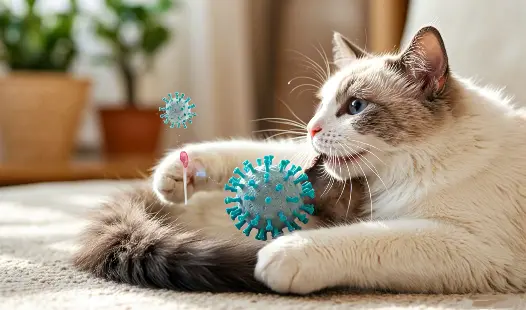
GS-441524 Demystified: A Complete Guide to Its Mechanism, Efficacy, and Safety
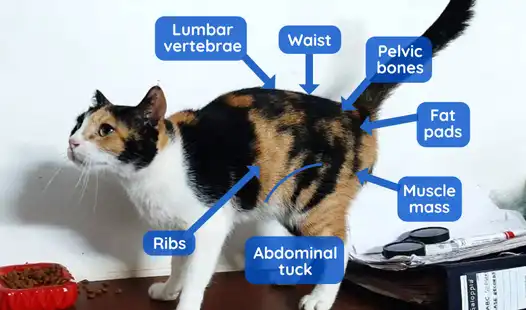
Life After FIP: Long-Term Care for Your Cat Post-GS-441524 Treatment
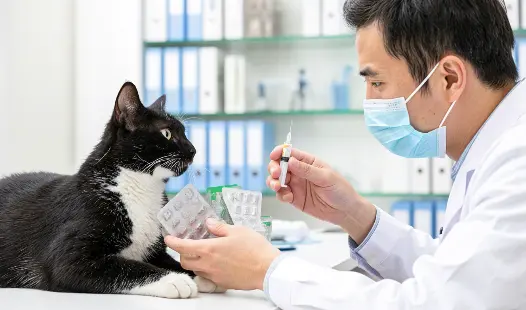
GS-441524 Injection vs. Tablets: Which Form is Better for Your Cat?
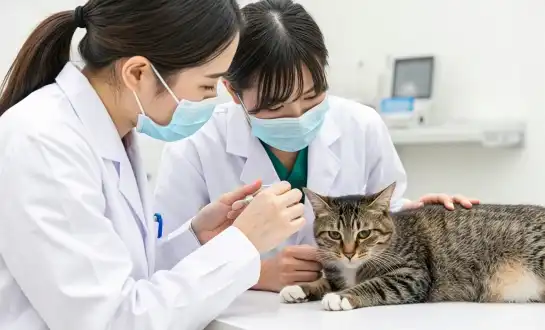
The Secret of GS-441524 Powder: How to Compound Your Own Oral Solution?
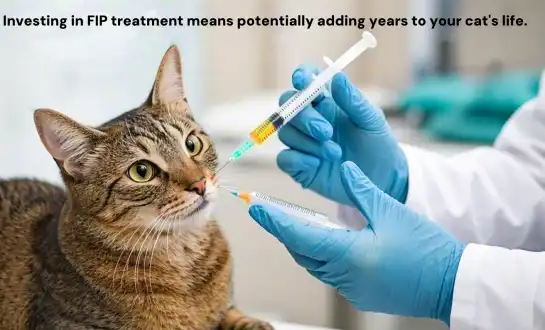
Is FIP Treatment Too Expensive? How to Budget for GS-441524?













_副本_1758508468100.webp)
